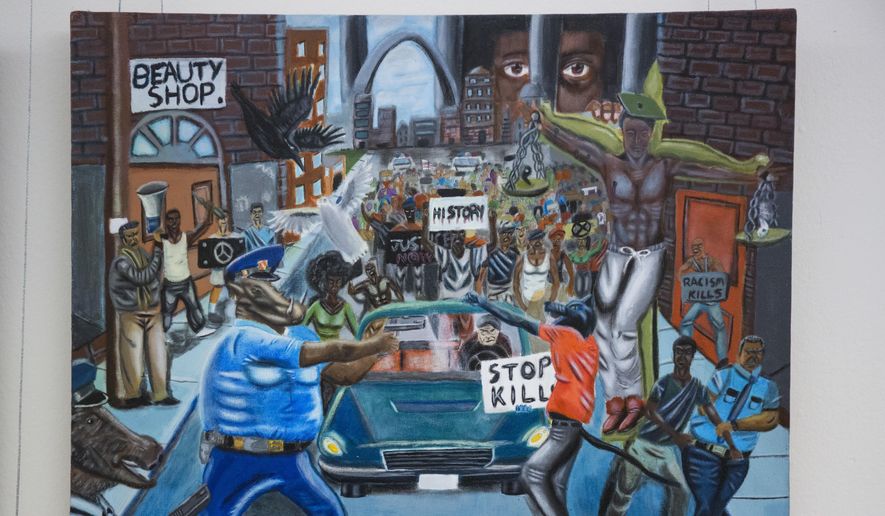A Missouri Democrat filed a lawsuit Tuesday in federal court against the Architect of the U.S. Capitol over his decision to remove a painting that stirred controversy over its depiction of cops as pigs.
Rep. William Lacy Clay said the decision of Stephen Ayers, the Architect of the Capitol, to pull down former high school student David Pulphus’ painting was “unfair, arbitrary and unconstitutional.”
“This intolerable and unprecedented action by the Architect of the Capitol has not only deprived my constituent of his 1st Amendment rights,” Mr. Clay said in a statement. “It has also sent a chilling message to young Americans that their voices are not respected; their views are not valued; and their freedom of expression is no longer protected in the U.S. Capitol.”
For seven months, Mr. Pulphus’ painting — “Untitled #1” — had been on display in a U.S. Capitol tunnel after being picked by Mr. Clay to be among the more than 400 winners of a high-school art competition sponsored by Congress.
Last month, though, Republican lawmakers took issue with the way it showed police officers with boars heads, saying it disrespected members of the law enforcement community and violated the ground rules of the competition, which warned against “sensationalistic” issues and “contemporary” events.
The painting was inspired by the civil unrest in Ferguson, Missouri, following the 2014 shooting of Michael Brown by a police officer, who was later clear of any wrongdoing.
Some lawmakers — including Rep. Duncan Hunter of California — took matters into their own hands by yanking down the painting and returning it to the office of Mr. Clay, who repeatedly rehung it.
Mr. Ayers eventually ruled last month that the painting violated the competition rules, and it was taken down.
Mr. Clay said Tuesday he is proud to defend the constitutional rights of Mr. Pulphus.
“This case is truly about something much bigger than a student’s painting, it is about defending our fundamental 1st Amendment freedoms which are currently under assault in this country,” he said. “And that includes the right to artistic expression … even when that creativity is considered objectionable by some, and applauded by others. That right is strongly protected by Supreme Court precedent.”
• Seth McLaughlin can be reached at smclaughlin@washingtontimes.com.




Please read our comment policy before commenting.